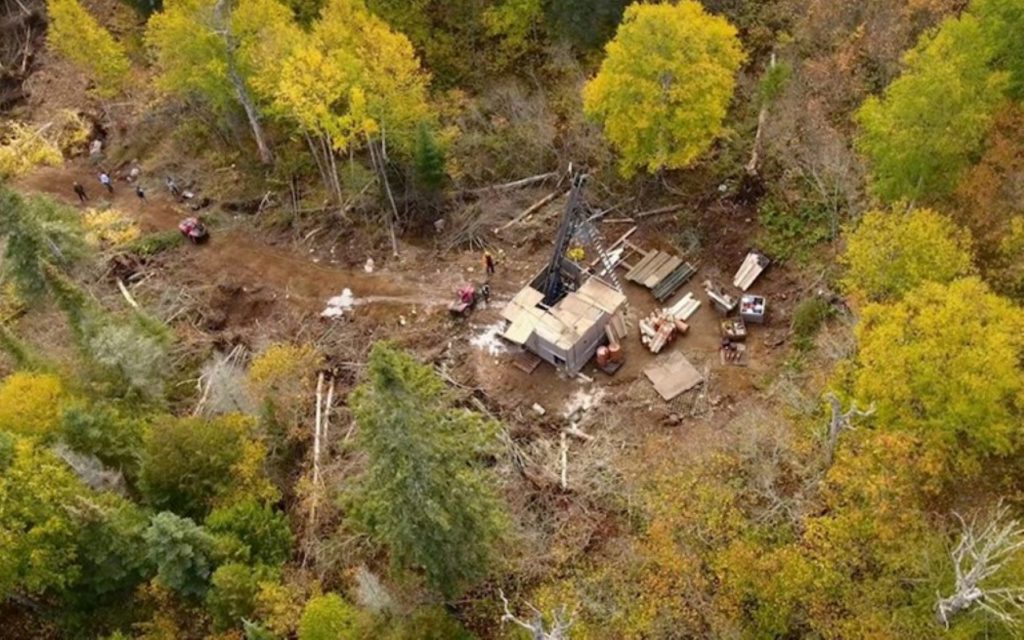Generation Mining’s updated Marathon feasibility shows strong economics

Generation Mining (TSX: GENM) has delivered an updated feasibility study for its Marathon palladium-copper project in northwestern Ontario, replacing the one it completed in March 2021.
The 2023 study presents an optimized design for the project with improved clarity on anticipated costs, Generation said. This includes an increased plant throughput and improved metallurgical recoveries. It also takes into account an 8.5% increase in mineral reserves tonnages and decreased strip ratio at the Marathon mine.
The FS outlines the operation of an open-pit mine and process plant over a mine life of 12.5 years, producing 2.1 million oz. palladium and 517 million lb. copper during that span. Life-of-mine payable metals also include 485,000 oz. platinum, 158,000 oz. gold and 3.2 million oz. silver.
Compared to the 2021 study, the initial capital cost has risen by 25% to C$1.11 billion (C$898 million net of equipment financing and pre-commercial production revenue). Payback period of the capital is estimated at 2.3 years.
Despite the inflationary environment, the project is still expected to generate robust economics, highlighted by an after-tax net present value, at a 6% discount rate, of C$1.16 billion and internal rate of return of 25.8%, based on a long-term price of $1,800/oz. for palladium and $3.70/lb. for copper.
This compares similarly to the 2021 economics, which showed an after-tax NPV of C$1.07 billion and IRR of 29.7%, with the exact same payback period. The metals prices used previously were $1,725 for palladium and $3.20 for copper.
“This updated feasibility study underscores just how robust the Marathon project is, even in the current inflationary environment. This, combined with strong demand for critical minerals, makes the rationale for the project becoming Canada’s next critical minerals mine more compelling than ever before,” Generation CEO Jamie Levy said in a news release.
The Marathon project, on a copper-equivalent basis, is expected to be one of the lowest CO2 equivalent intensity mines in the world once in production, Levy said.
Levy added that with the receipt of environmental assessment approvals and recently announced indicative offtake term sheets, the company is advancing to arrange project financing and “working hard to obtain the permits necessary to start construction.”
“Our team has been working hard to develop the Marathon project and has successfully optimized and improved confidence in the designs of the process plant, the open pits and the necessary infrastructure for the project,” COO Drew Anwyll said.
“Detailed design will advance, and we will continue to de-risk the project in anticipation of finalizing the project financing and receiving approval of the required permits to commence construction later in 2023,” he added.
Located along the Trans-Canada Highway, the Marathon project involves the construction, operation, decommissioning and remediation of three open pits to produce copper concentrates. It recently finalized an offtake agreement with Glencore, under which the Swiss mining giant will buy 50% of the concentrates to be produced from Marathon.
In November 2022, Generation obtained approval to proceed with the Marathon project following a review of its environmental impacts by provincial and federal representatives, subject to pre-construction conditions.
{{ commodity.name }}
{{ post.title }}
{{ post.date }}




Comments